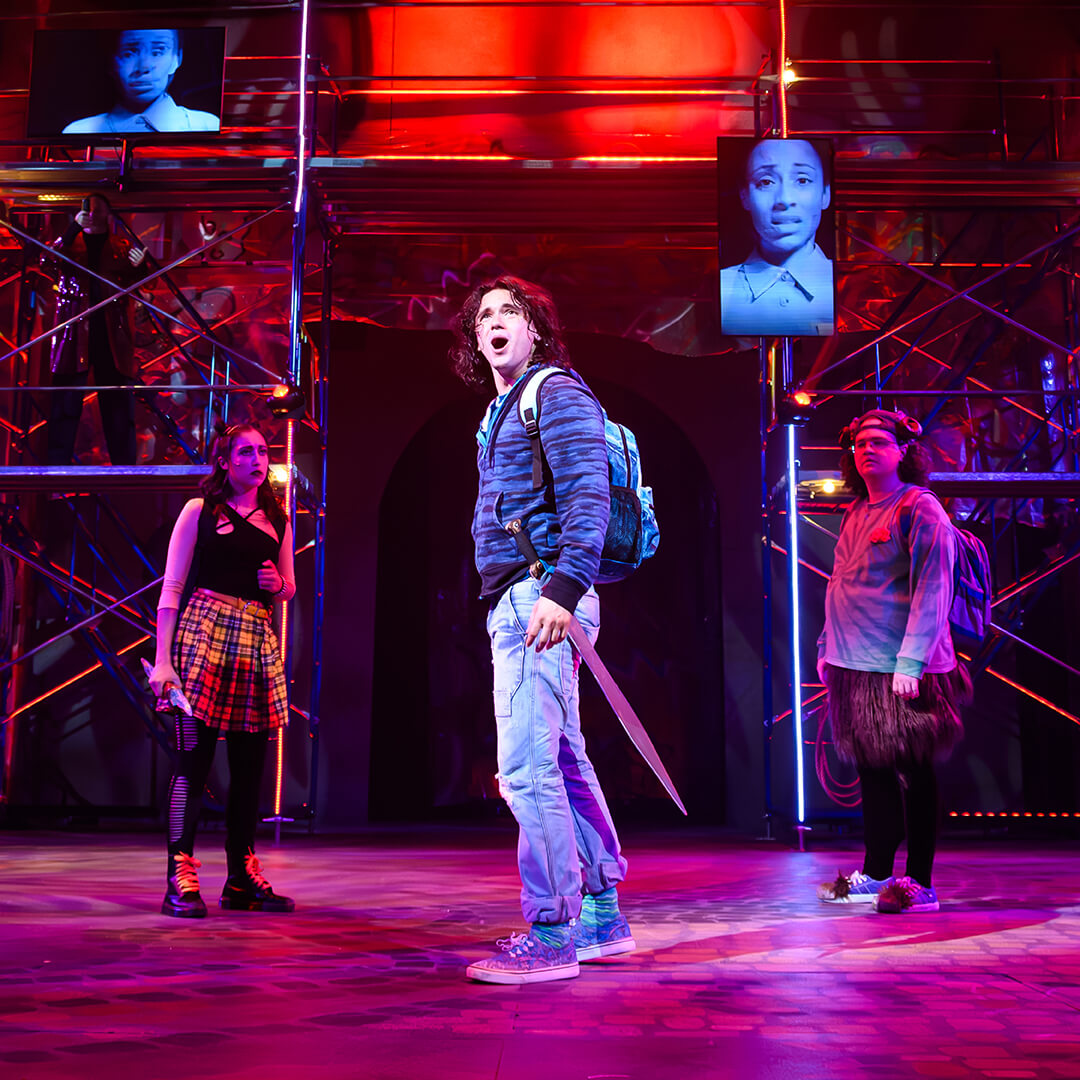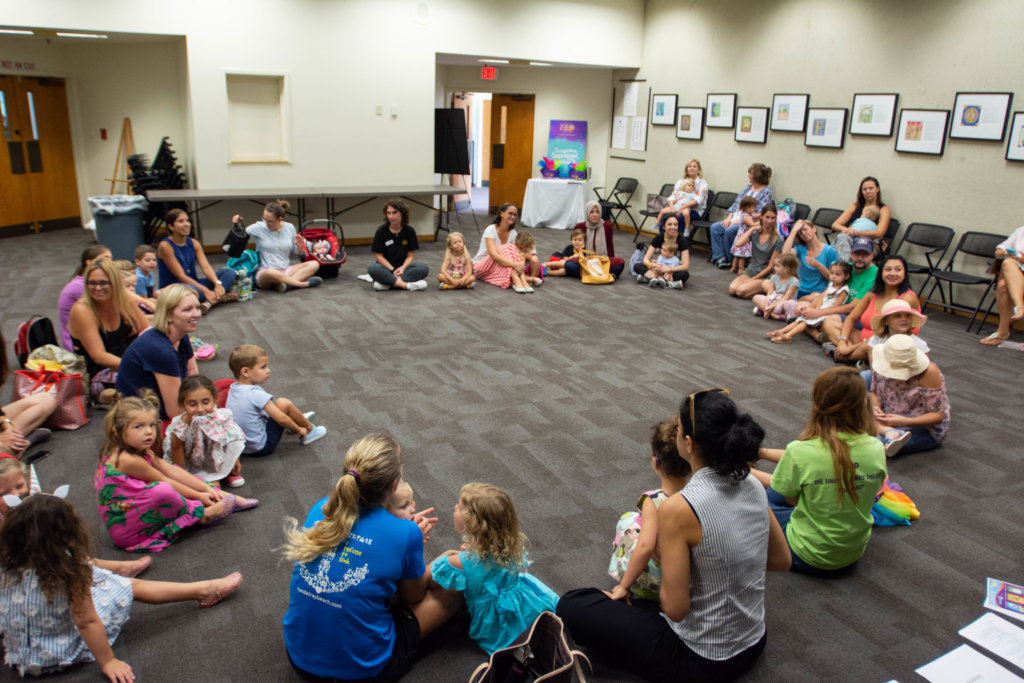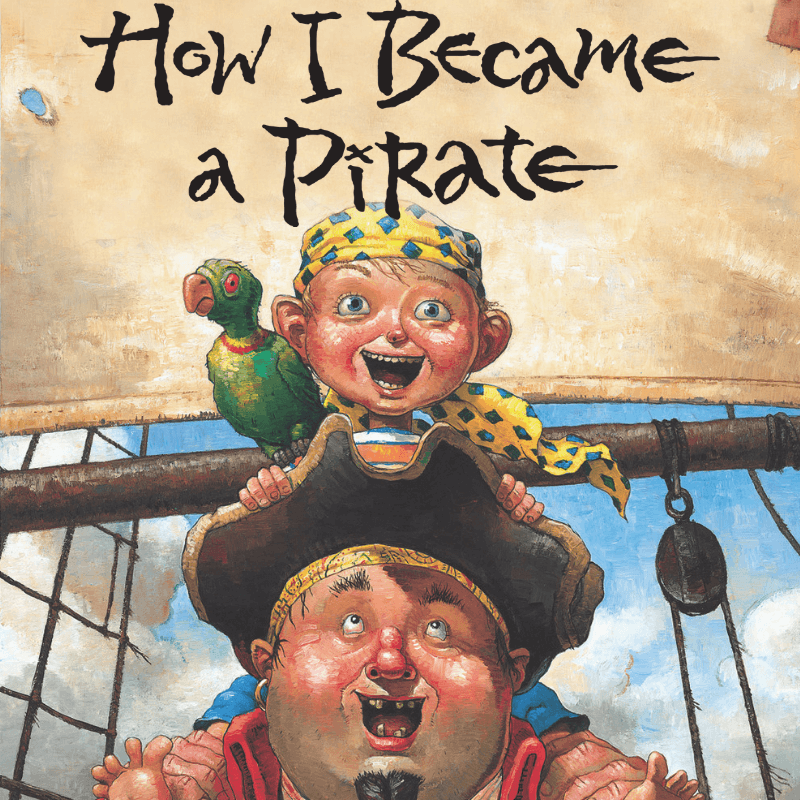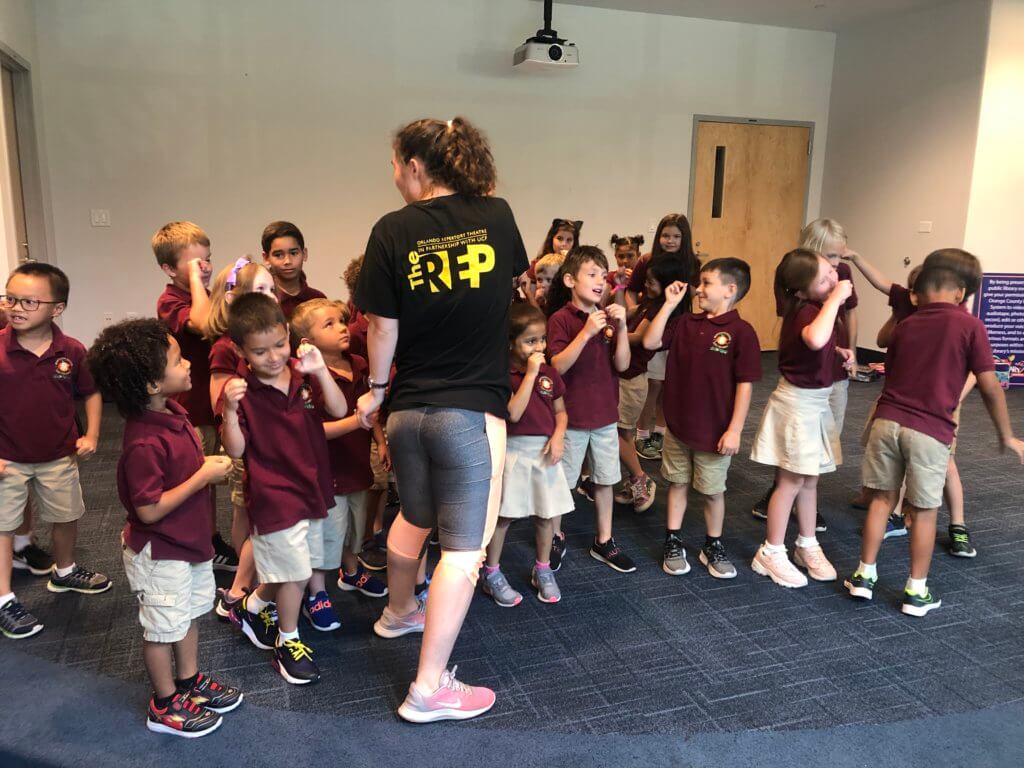
Theatre at Home- The Lightning Thief: The Percy Jackson Musical
Continue the adventure after the show...
Learn MoreOrlando Family Stage
The Finest in Family Theater
Written by Brittany Caine, 3rd-year Graduate Student in UCF’s Theatre for Young Audiences Masters Program.
There are three syllables in the word pantomime . . . but I bet you already knew that. Do you know what it means, though? Do you know how to do it? Every child who participates in Orlando REP’s newest early literacy program, REP Readers, knows. That’s because every child who participates in REP Readers is engaging in story drama, a creative learning style best explored through imaginative play.

In addition to the free book-based drama workshop (which takes place at local libraries), every child who participates in REP Readers also receives a complementary ticket to the current show being produced. When that ticket is used at the theatre, the child is given a copy of the book from the workshop. The show and the book purposefully go hand-in-hand, with the former almost always inspired by the latter. REP Readers isn’t just drawing connections: it’s promoting literacy.
Defined simply as the ability to read and write, literacy goes far beyond that. It is about understanding what you read and write, understanding the stories that are being told. REP Readers, as a program, advocates that literacy is a living entity: it should develop as children grow, and it should not be limited to a single format. Orlando Family Stage prides itself on being a theatre for all ages, but how do you invite a young child to experience a complicated show? Find its heart. Through REP Readers, we believe we have made it possible for students to understand the show through the text, through a singular vocabulary word that can articulate what it’s about.
Take, for example, Orlando REP’s show that closed last weekend, How I Became A Pirate. Based on a much-loved picture book of the same title, written by Melinda Long and illustrated by David Shannon, the show is not heavy on plot. Instead, like the book, it tells the story of Jeremy Jacob, who, because of his digging prowess, is taken aboard a pirate ship, crewed by quirky buccaneers in need of a place to bury their treasure. They sail up and down, get a little lost in Bora Bora, and, with Jeremy’s help, they successfully navigate to a perfect spot to bury their treasure.
 |
Navigate. Navigate. The word stood out to us. Each moment of both the book and the show was propelled by navigation. In our workshop we would define it, but we would also do more than that: we wanted our young audiences to experience it. Only embodying “navigate” could we make sure it was completely understood, and that the youngest of our audience members were ready to set sail. |
At the beginning of the story, the pirates navigate to Jeremy, who is minding his business on the beach. After bringing him aboard, they navigate him through the proper way to be a pirate. They navigate the loss—and failure to retrieve—a soccer ball from the jaws of a shark, and ultimately, they navigate to Jeremy’s backyard, where the treasure is safely hidden from any greedy eyes. For our Pirate REP Readers, we invited our students to imagine the beach.
|
|
It took us three (intentional) tries to find the right spot on the beach to lay out our towel: from the get-go, we had the participants navigating. Then, stretched out on their pretend towels and basking under a warm and fully imagined sun, the students had the book read to them. Immediately after, a teaching artist, dressed as a pirate from the book, came barreling in, spied the young people on their towels, and invited them to help her look for treasure. |
“I be needin’ help navigatin’,” she explained. “Do ye know what that be meanin’?”
| This is the magic of REP Readers: students are able to, experientially, discover the meaning of a word. They know what it means to look and what it means to find, and now—without being told that they are learning—they have digested the meaning of the word navigate.
The lesson then took the children on a journey similar to Jeremy Jacob’s journey, as they explored two different beaches and finally, upon wearing themselves out and needing a nap on the ship, discovered the treasure stuffed in the pillows. The pirate, relieved, went to sleep, and the other teaching artist invited the students to navigate their way back to library. |

|
We are living in a knowledge-based economy and information age, with new demands for literacy. People must be able to rapidly process, understand, and respond to information. These skills come from an early literacy foundation, much of which can be supplemented through vocabulary and story. Studies show that literacy develops best when it comes from three angles: at home, at school, and from the community. REP Readers intentionally engages its participants in the community, then at home, then the community again, and finally back at home. The cyclical nature of the program is not just to create repeat programming and enthusiastic theatre-goers. We are utilizing theatre and drama to throw open a door to literacy so young people can be engaged in stories and lifelong reading habits, as well as be prepared for whatever the world might throw at them. Even if it’s navigating to buried treasure.
Don't miss out on the magic. Grab your tickets now and
make unforgettable memories at Orlando Family Stage!